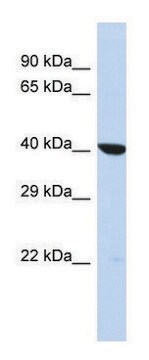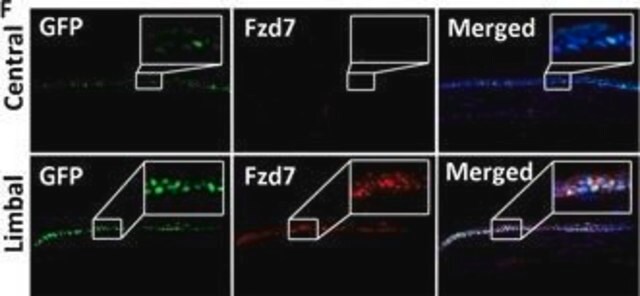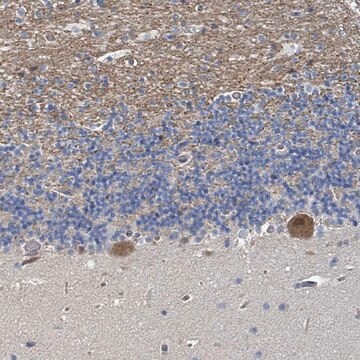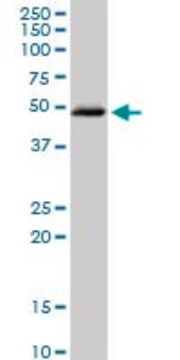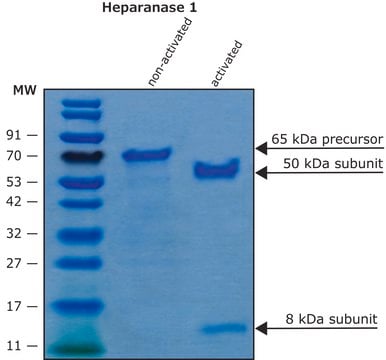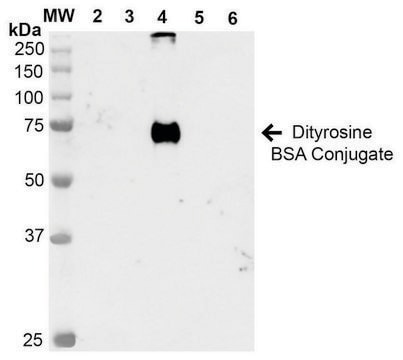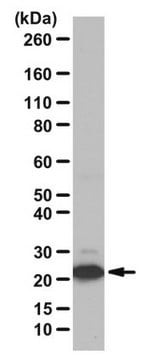AB2226
Anti-MDGA1 Antibody
from rabbit, purified by affinity chromatography
Synonim(y):
MAM domain-containing glycosylphosphatidylinositol anchor protein 1, GPI and MAM protein, GPIM, Glycosylphosphatidylinositol-MAM, MAM domain-containing protein 3
About This Item
Polecane produkty
pochodzenie biologiczne
rabbit
Poziom jakości
forma przeciwciała
affinity isolated antibody
rodzaj przeciwciała
primary antibodies
klon
polyclonal
oczyszczone przez
affinity chromatography
reaktywność gatunkowa
mouse, rat
reaktywność gatunkowa (przewidywana na podstawie homologii)
human (based on 100% sequence homology), bovine (based on 100% sequence homology)
metody
western blot: suitable
numer dostępu NCBI
numer dostępu UniProt
Warunki transportu
wet ice
docelowa modyfikacja potranslacyjna
unmodified
informacje o genach
human ... MDGA1(266727)
Opis ogólny
Specyficzność
Immunogen
Zastosowanie
Neuroscience
Developmental Neuroscience
Jakość
Western Blot Analysis: 0.5 µg/mL of this antibody detected MDGA1 in 5 µg of untreated and PNGase F treated mouse P7 brain tissue lysate. This antibody recognizes glycosolated (>160 kDa) (lane 1) and deglycosolated MDGA1 (lane 2).
Opis wartości docelowych
Postać fizyczna
Przechowywanie i stabilność
Komentarz do analizy
Untreated and PNGase F treated mouse P7 brain tissue lysate.
Inne uwagi
Oświadczenie o zrzeczeniu się odpowiedzialności
Not finding the right product?
Try our Narzędzie selektora produktów.
Kod klasy składowania
12 - Non Combustible Liquids
Klasa zagrożenia wodnego (WGK)
WGK 1
Temperatura zapłonu (°F)
Not applicable
Temperatura zapłonu (°C)
Not applicable
Certyfikaty analizy (CoA)
Poszukaj Certyfikaty analizy (CoA), wpisując numer partii/serii produktów. Numery serii i partii można znaleźć na etykiecie produktu po słowach „seria” lub „partia”.
Masz już ten produkt?
Dokumenty związane z niedawno zakupionymi produktami zostały zamieszczone w Bibliotece dokumentów.
Nasz zespół naukowców ma doświadczenie we wszystkich obszarach badań, w tym w naukach przyrodniczych, materiałoznawstwie, syntezie chemicznej, chromatografii, analityce i wielu innych dziedzinach.
Skontaktuj się z zespołem ds. pomocy technicznej
